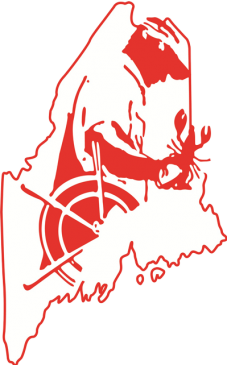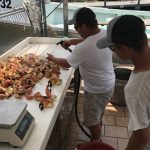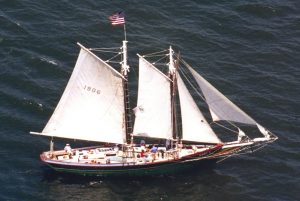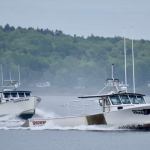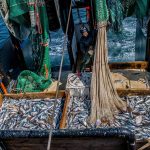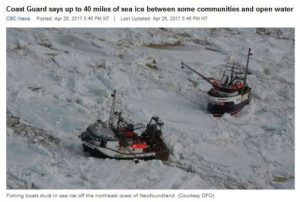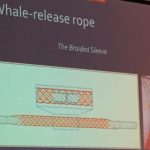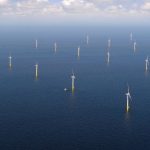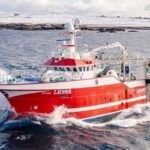Tag Archives: North Atlantic right whales
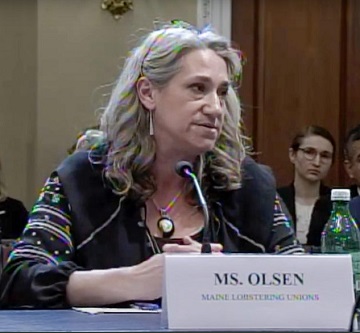
Maine Lobstering Union Testifies Before U.S. Congress on Protecting Maine’s Safe and Sustainable Lobster Fishery
Maine Lobstering Union Local 207 Executive Liaison and Political Director Virginia Olsen testified at a hearing held by the U.S. Committee on Natural Resources, Subcommittee on Water, Wildlife and Fisheries, opposing legislation that would unfairly target the Maine lobstering industry. The subcommittee hearing included testimonies on H.R. 1213, H.R. 1213 will impose meritless measures regarding endangered right whales while undermining Maine’s economy and the financial stability. “As Maine fishermen we have repeatedly stepped up and done whatever was required of us to protect right whales,” said Olsen. “Regulations only benefit the whale when the whales are present, and where there are no whales there is no justification for the regulation. Unnecessary regulations only erode public confidence in the Endangered Species Act (ESA) without any benefit to the endangered species itself.” Photos, >click to read< 09:10
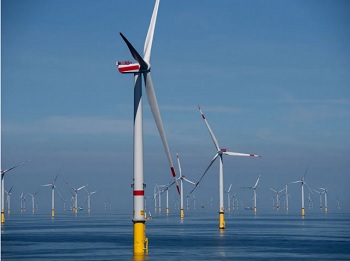
Congressman Van Drew: National Security is the Price We Will Pay
On April 17, Congressman Van Drew issued the following statement after the Pentagon sounded the alarms on how the development of offshore wind farms will affect our national security. “During my field hearing in South Jersey last month, my colleagues and I highlighted the adverse effects offshore wind development would have on various sectors and industries, from our environment to our national security, “said Congressman Van Drew. “These warnings can no longer be ignored. This President and this administration continue to disregard these valid concerns,,, >click to read< 08:06
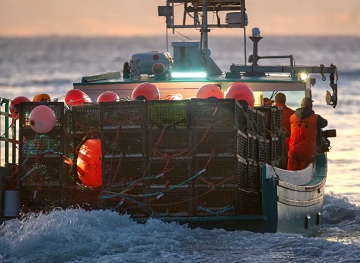
It’s time for Canada to relax fishery closures around right whale sightings, committee says
The standing committee on fisheries and oceans is recommending that the federal government relax the fishing closures it imposes when endangered North Atlantic right whales are sighted in Canadian waters. In a report released Tuesday, the committee said the Department of Fisheries and Oceans Canada should modify its rules for the 2023 season in the Gulf of St Lawrence, Bay of Fundy and Roseway Basin off southern Nova Scotia since most single-whale detections are animals in transit and not staying to feed. It also says season-long closures should rarely be imposed. >click to read< 07:20

Catch size a hot topic at Zone B meeting
A declining stock, looming federal rules to protect right whales and the court fights against them, how required gear and reporting changes will be paid for — Zone B lobstermen had a lot of industry news to talk about April 12 at Mount Desert Island High School. Discussion centered mainly on newly proposed minimum (and maximum) legal catch sizes to bolster the lobster stock. “I’ve heard at all council meetings, it’s not if you act, it’s when you act,” said Patrick Keliher, commissioner of the Maine Department of Marine Resources. “It’s almost like no one is taking into account what we’re seeing,” Zone B Council Vice Chairman James Hanscom said. “As an industry, we’re handling a lot of lobsters.” Several lobstermen and council members at the meeting had attended a March ASMFC meeting in Ellsworth and were familiar with proposed management measures that would increase the minimum legal size for landed lobster. >click to read< 16:20

Up to 70 North Atlantic right whales were spotted in Cape Cod Bay
About one-fifth of the world’s entire population of North Atlantic right whales were all spotted hanging out in Cape Cod, Mass., heading into the weekend. Between 60 to 70 right whales, including a mother and calf, were seen feeding outside the east end of the Cape Cod Canal in the Cape Cod Bay on Friday, according to the Massachusetts Environmental Police. The wildlife officials sent out two patrol vessels to protect the whales from boat traffic. By Saturday, the whales had seemingly moved on. >click to read< 11:00

Claims about offshore wind farms killing whales are unsubstantiated, scientists say
Since December, more than 23 whales have washed up dead along the east coast of the United States, leading wind energy skeptics to lay blame on the pending installation of offshore wind projects. But some scientists with the federal government say that there is no evidence to support those claims. Last year, the Biden administration sold six leases to produce wind from turbines off the mid-Atlantic coast, part of its effort to fight climate change by boosting production of clean, renewable energy. Some pundits and politicians have concluded that preconstruction activity on new wind turbines has resulted in an increase in the death of whales. Clean Ocean Action has joined Republican New Jersey Reps. Chris Smith and Jeff Van Drew to demand a suspension of wind development. >click to read< 11:32

In class action lawsuit, Massachusetts lobstermen fight efforts to ‘red list’ their catch
Four Massachusetts lobstermen have filed a class action suit against the Monterey Bay Aquarium and Marine Stewardship Council, groups that urged distributors and grocery stores to avoid purchasing lobster because of the fishery’s impact on North Atlantic right whales. “We’ve always been like the punching bag for, like, the whale people. So I’m glad we’re finally striking back,” said plaintiff Jarrett Drake, a lobsterman who fishes out of New Bedford, “because it gives us a chance to try to at least defend ourselves.” “When [Montery Bay Aquarium] chooses to tag a product as one to be avoided (“red-list”) on Seafood Watch, it acts with near certainty that the companies it collaborates with will immediately discontinue that product,” the plaintiffs say in their complaint. >click to read< 08:35
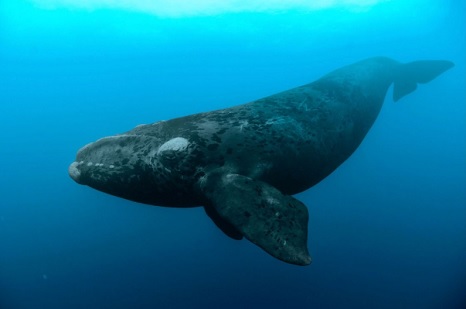
Blue State Enviro Groups Demand Answers From Green Biden Administration On Whale Deaths
Nonprofit groups in the state’s coastal towns have spent months trying to get the administration to place a moratorium on offshore wind projects until a thorough, transparent investigation can be completed to see if there is a connection to recent whale strandings. Since December 2022, over 20 whales have washed up along east coast shores near survey sites for future offshore wind projects in an unusual mortality rate, according to NOAA. “The low-frequency sonar used in the windmills is causing deafness in the whales. It’s one of those things that science is only going to pick up on years after the fact, in the meantime, whales are being killed,” James Lovgren, board of trustee member of Clean Ocean Action and retired commercial fisherman, told the DCNF. “You have to pause and ask, ‘why are we doing this?’” >click to read< 09:17

Maine lobster industry wages legal battle over recent regulations, while new ones remain frozen
The Maine Lobstermen’s Association in September appealed a ruling in a lawsuit against federal regulators in which a judge rejected the association’s attempt to block the National Marine Fisheries Service’s 10-year plan to reduce the risk posed by fishing gear to North Atlantic right whales. The animals risk injury or death when they become entangled in lines or gear. The case has been moving with relative speed through the court system, with oral arguments presented in the U.S. Court of Appeals in Washington, D.C., last week. The association argued that the National Marine Fisheries Service, part of the National Oceanic and Atmospheric Administration, failed to rely on the best scientific information available and did not account for the impact of conservation measures already adopted by the Maine lobster fishery. In effect, the lobstermen argue, the federal government placed its thumb on the scale in favor of the whales. >click to read< 10:56
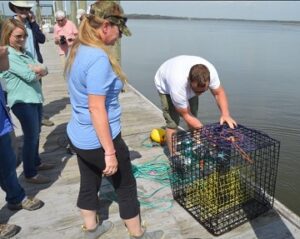
Black Sea Bass fishing return
Locally caught black sea bass may be back on the menu in the Golden Isles from November through April during calving season for North Atlantic right whales. The Georgia Conservancy has spent the past two years in a research project funded by UGA Marine Extension Service and Georgia Sea Grant to study the innovation of on-demand traps in an effort to eliminate the threat of fishing gear entanglement of the whales. Black sea bass fishing off the Georgia coast has been banned during calving season for more than a decade to help protect the whales. >click to read< 15:24

Biden Administration sued by Massachusetts lobstermen for closing waters to protect endangered whales
Massachusetts lobster fishermen have filed a lawsuit against the Biden administration over its closure of fishing grounds done with the intention of protecting an endangered species of whale. The lawsuit stems from the February 1 closure of 200 square miles of the Massachusetts Bay that will prevent lobster fishing until the end of April in a move that the National Oceanic and Atmospheric Administration says was necessary to protect the North Atlantic right whales from being tangled in fishing ropes. Video, >click to read< 08:02
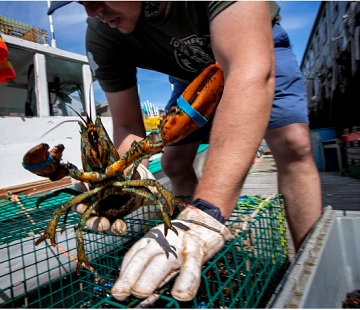
Despite a pause on new regulations, U.S. and Canadian lobstermen see big challenges ahead
After a two-year hiatus, members of the U.S. and Canadian lobster fisheries met in Portland over the weekend to discuss challenges facing their industry. Top of mind is how the industry will prepare before new federal regulations designed to protect endangered right whales begin in six years. Fisheries in Maine had late last year expressed relief about the years-long delay in the rules change included in a federal spending bill, as it bought the industry more time to research and test new fishing techniques and other measures aimed at protecting North Atlantic right whales. >click to read< 09:10
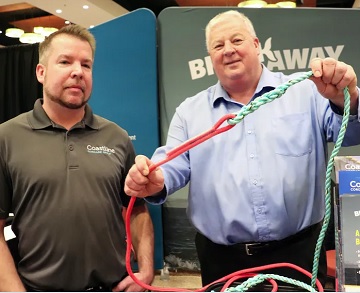
P.E.I. fishermen getting more time to start using breakaway lines that protect right whales
When the deaths of dozens of right whales made headlines in 2017, the Department of Fisheries and Oceans took notice. It saw that whales were getting tangled in fishing gear and dying when they couldn’t escape. So, the department set a deadline for Canadian fixed gear (trap) fisheries to begin using breakaway lead lines that would allow anything weighing 1,700 pounds or more to break free. That deadline was extended last year until 2023, and last month it was extended for another year, said Melanie Griffin, a marine biologist with the P.E.I. Fishermen’s Association. >click to read< 10:48

NOAA pleads for urgency in right whale conservation, lobster gear changes
A previously unscheduled appearance before the Atlantic States Marine Fisheries Council gave the opportunity for NOAA Fisheries Assistant Administrator Janet Coit to advocate for the necessity of adapting to new lobster and crab trapping gear to save both North Atlantic right whales and the lobster industry. A deal cut by Maine legislators in a recent congressional spending bill delayed new right whale protections for six years, so the agency is looking to have its new rules set up and ready to go when that period expires. In the meantime, there’s options open to expand on-demand fishing gear so there are fewer large ropes suspended in the water. The bill allocated $26 million to ASMFC for ropeless, on-demand gear, along with monitoring and cost recovery. >click to read< 08:09

Feds push ignorance defense for whale killing by offshore wind development
The Bureau of Ocean Energy Management and the NOAA Fisheries agency have both put out what amount to “arguments from ignorance” claiming that offshore wind development has nothing to do with the recent whale deaths. “We know nothing about it so it must not be happening” is a ridiculous defense to the charge of offshore wind development causing the death of a lot of whales. But this is exactly what the Feds are now saying. NOAA Fisheries is a scientific agency and their version is more scientific, which is important because this is really a scientific issue. Let us look at their arguments. >click to read< 17:38
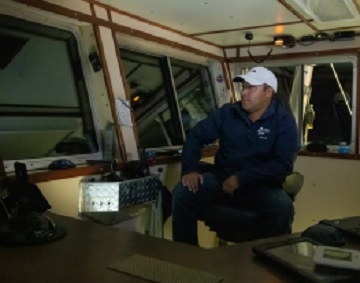
How new fishing technology could help save North Atlantic right whales
Captain Martin Noel and his crew have returned to the fishing grounds to retrieve their crab traps from the Gulf of St. Lawrence, about 140 kilometres off Shippagan, N.B. At the press of a button on Noel’s smartphone, an acoustic signal from a floating transducer pings an oxygen tank at the bottom of the ocean. That cues the tank to inflate a buoy, in turn, sending to the surface a line of traps from 300 feet below. Brimming with one of Canada’s most lucrative seafood catches, snow crab, these on-demand traps are pivotal to Canada’s plans to protect one of the world’s most critically endangered populations of large whales. >click to read< 10:06
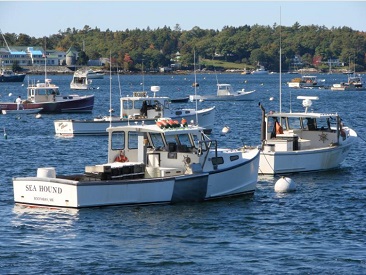
Maine lobstermen: The other endangered species?
When President Biden signs the $1.7 trillion omnibus bill into law, Maine’s lobster industry will take a six-year step back from the brink thanks to the efforts of Maine’s congressional delegation which secured a last-minute addition that put further restrictions to protect endangered right whales on hold. “The pause doesn’t mean this is over,” said Boothbay’s Troy Plummer, member of Maine Lobstermen’s Association (MLA) board of directors and lobster boat operator for nine years. “Everything is status quo until 2028, but we’ll have to do our homework,” said Boothbay Harbor’s Clive Farrin, lobsterman for more than 20 years and past president of Downeast Lobstermen’s Association. >click to read< 10:10
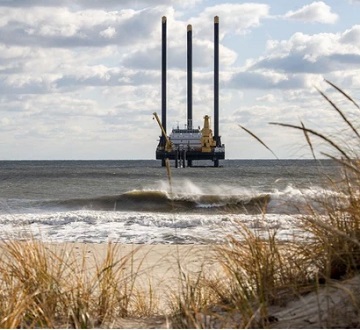
Follow the Science? US Ignored Own Scientists’ Warning in Backing Atlantic Wind Farm
US government scientists warned federal regulators the South Fork offshore wind farm near the Rhode Island coast threatened the Southern New England Cod, a species so venerated in the region a wooden carving of it hangs in the Massachusetts state house. The warnings were delivered in unpublished correspondence weeks before Interior’s Bureau of Ocean Energy Management authorized the 12-turbine South Fork plan in November 2021. And they serve to underscore the potential ecological consequences and environmental tradeoff of a coming offshore wind boom along the US East Coast. President Joe Biden wants the US to deploy 30 gigawatts of offshore wind by the end of the decade. >click to read< 10:15
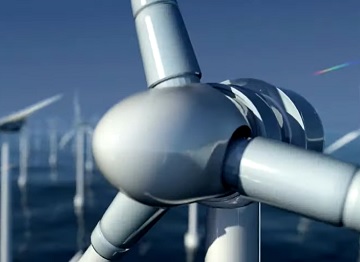
Feds: Whales Must Be Protected from Turbines
Soon after a group of opponents to proposed East Coast offshore wind projects hired a law firm with environmental regulation expertise, the federal Bureau of Ocean Energy Management (BOEM) announced a new plan to protect North Atlantic Right Whales and put it out for public comment. The opponents, with Thomas Jefferson Institute for Public Policy as part of the coalition, had been pointing to the impact of the project on the whales for months and this protection and mitigation plan admits the problem is significant. One apparent result of that will be a major delay in publication of the draft environmental impact statement (EIS) on Dominion Energy Virginia’s Coastal Virginia Offshore Wind (CVOW) project off Virginia Beach. >click to read< 09:48
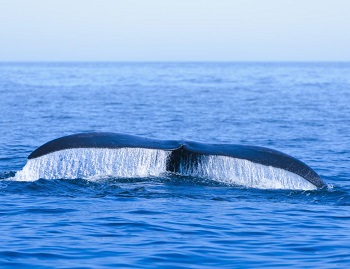
Wind Projects Off New England Put Endangered Right Whales at Risk, Warns NOAA Scientist
Planned wind projects off the New England coast threaten to harm the region’s dwindling population of endangered right whales, according to a US government marine scientist. The warning from a top National Oceanic and Atmospheric Administration official, obtained by Bloomberg under a Freedom of Information Act request, underscores the potential legal and environmental perils of offshore wind development along the coast. President Joe Biden has a goal of deploying 30 gigawatts of offshore wind within the decade. Both initial construction of wind projects and decades of expected operation threaten to imperil right whales in southern New England waters, Sean Hayes, chief of the protected species branch at NOAA’s National Northeast Fisheries Science Center, said in a May 13 letter to Interior Department officials. >click to read< 11:26
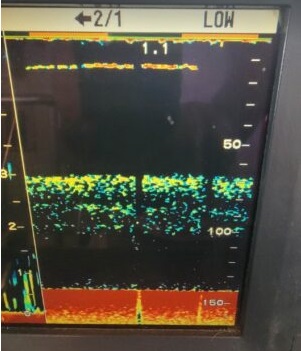
Jerry Leeman – Why it is wrong to assume anything
I’ll use this photo to prove a point. NOAA uses a computer to pick where their assessments on fish stocks will take place. Here lies the problem. It’s in random spots, and they never make the same tow again at the same time of the year because they use a computer model that knows nothing of fishing. NOAA is taking the assumption that fish live everywhere. That’s pretty funny because if you knew anything about fishing at all, fish species don’t hang on every piece of bottom all day and night. They just don’t. Not only do fish have tails, but they also swim up into the water columns and travel with the feed and breeding cycles and changes of the seasons. >click to read the rest< by Jerry Leeman.16:16

Court decision offers new hope for Maine lobstermen fighting new regulations
A small sign of hope for Maine Lobstermen as a federal judge in D.C. District Court has ruled that new lobster fishing restrictions designed to protect North Atlantic Right Whales will be delayed until 2024 to give the government time to draft more effective regulations. “We need to have time to get this done right,” said Maine Lobstering Union Executive Director Virginia Olsen. Judge Boasberg had previously ruled that fishing restrictions issued by the National Oceanic and Atmospheric Administration, or NOAA didn’t go far enough to protect the whales. His new ruling sends the current biological opinion, which is the document containing the rules and the science behind them, back to NOAA. >click to read< 10:43
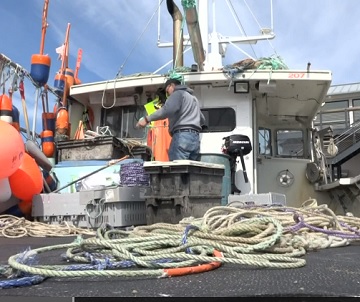
Judge rules two-year extension before lobster industry regulation changes
A Thursday afternoon opinion was confirmed with bipartisan agreement between environmental groups and Maine lobstermen intervenors to allow the federal government to come up with new regulations to reduce right whale entanglements. Judge James Boasberg of D.C. ruled in favor of the two-year extension as new rules from National Marine Fisheries Service were set to be released this fall. Video, >click to read< 20:43
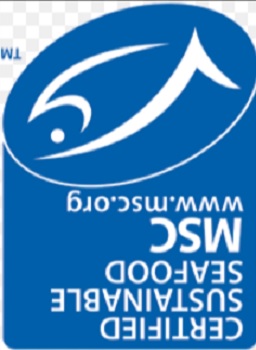
Sustainability group pulls lobster certification over whales
Representatives for Marine Stewardship Council, which is based in London, said Wednesday that the suspension of the Gulf of Maine lobster fishery’s certificate will go into effect on Dec. 15. The organization said in a statement that the danger North Atlantic right whales face from entanglement in fishing gear is a “serious and tragic situation” of “grave concern to all those involved in the fishing industry.” The Maine Lobstermen’s Association feels the MSC decertification is the “direct result of the federal government’s overreach and its misuse of science in overestimating risk from the Maine lobster fishery,” MLA Executive Director Patrice McCarron said Wednesday. >click to read< 17:42

Federal officials issued ‘economically debilitating’ rules on the Maine lobster industry, court filing says
The Maine Lobstermen’s Association on Thursday filed its opening brief with the U.S. Court of Appeals as the industry works to beat back regulations that it says will crush Maine’s signature fishery. Federal officials have proposed gear modifications to reduce the incidence of entanglement for endangered right whales, which number about 340. Other regulations would close certain areas to lobster fishing while the whales are migrating. The lobstermen’s association argues that the National Marine Fisheries Service must prove Congress gave it authority to issue stringent rules. >click to read< 07:17

Lobstermen may get temporary delay on new right whale restrictions
The lobster industry, National Oceanic and Atmospheric Administration, and the Center for Biological Diversity are involved in federal court negotiations over imposing new and tougher restrictions on fishing. The CBD brought a suit against the federal agency, arguing the rules imposed earlier this year don’t do enough to protect the endangered whales, as required by federal law. The National Marine Fisheries Service, which is part of NOAA, said it needed two years, while the CBD suggested just six months,,, >click to read< 08:57
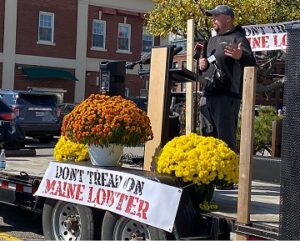
Lobstermen to state: ‘Step up’ and sue feds over gear, fishing restrictions
Stonington lobsterman Dwight Staples’ 37-foot lobster boat provides the essentials for 10 people. “This year has been different for me and maybe it has for you as well,” he told a large crowd in Portland Wednesday. “This year it seems so much I have to get up and fight to go to work. With all these restrictions, regulations coming down the pike, it seems as though we’ve had to get up and fight each and every day.” Staples addressed hundreds at a rally organized by the Maine Lobstering Union to oppose federal regulations on lobster gear and restrictions on fishing areas designed to protect endangered right whales. Union Director Virginia Olsen and others who are fighting the new federal regulations called on Attorney General Aaron Frey Wednesday to file suit against the federal government, rather than serve as an intervenor. >click to read< 17:25

Maine lobstermen fight back – ‘You have failed us’: Maine lobstermen face federal regulators
Maine lobstermen came face to face with federal officials out to impose stricter new rules to save the 350 remaining endangered right whales Wednesday. There have only been two whale entanglements in Maine, most recently in 2004, and no right whale deaths caused by Maine lobster gear. Despite that, NOAA insists these rules are necessary to further reduce the risk of a right whale death. >click to read< ‘You have failed us’: Maine lobstermen face federal regulators – There were some tense moments during a public hearing with Maine lobstermen and federal regulators Wednesday night a the University of Southern Maine in Portland. The meeting comes after Gov. Janet Mills and members of Maine’s congressional delegation requested NOAA visit the state to discuss tougher rules on the lobster industry. >click to read< 07:51
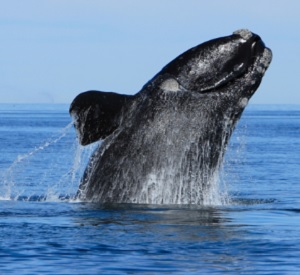
Proposed Virginia offshore wind farm threatens North Atlantic Right Whales
The proposed Coastal Virginia Offshore Wind Project is directly in the NARWs’ annual migration path. Dominion Energy has applied to erect 176 wind turbines, covering an area of approximately 10 miles by 15 miles—equal to the size of 85,000 football fields or the city of Tampa, Florida—located 27 miles off the coast of Virginia Beach. Each turbine will sit atop a monopole extending a minimum of 80 feet into the water and about 120 feet into the ocean floor, and its height above the water will top 620 feet. That’s higher than the Washington Monument, which is 555 feet tall. “How to kill whales with offshore wind?” Wojick asks. “Just push them into traffic. The collision deaths would not be directly attributable to the wall of noise created by the OSW project, so who would know?” >click to read< 08:55






